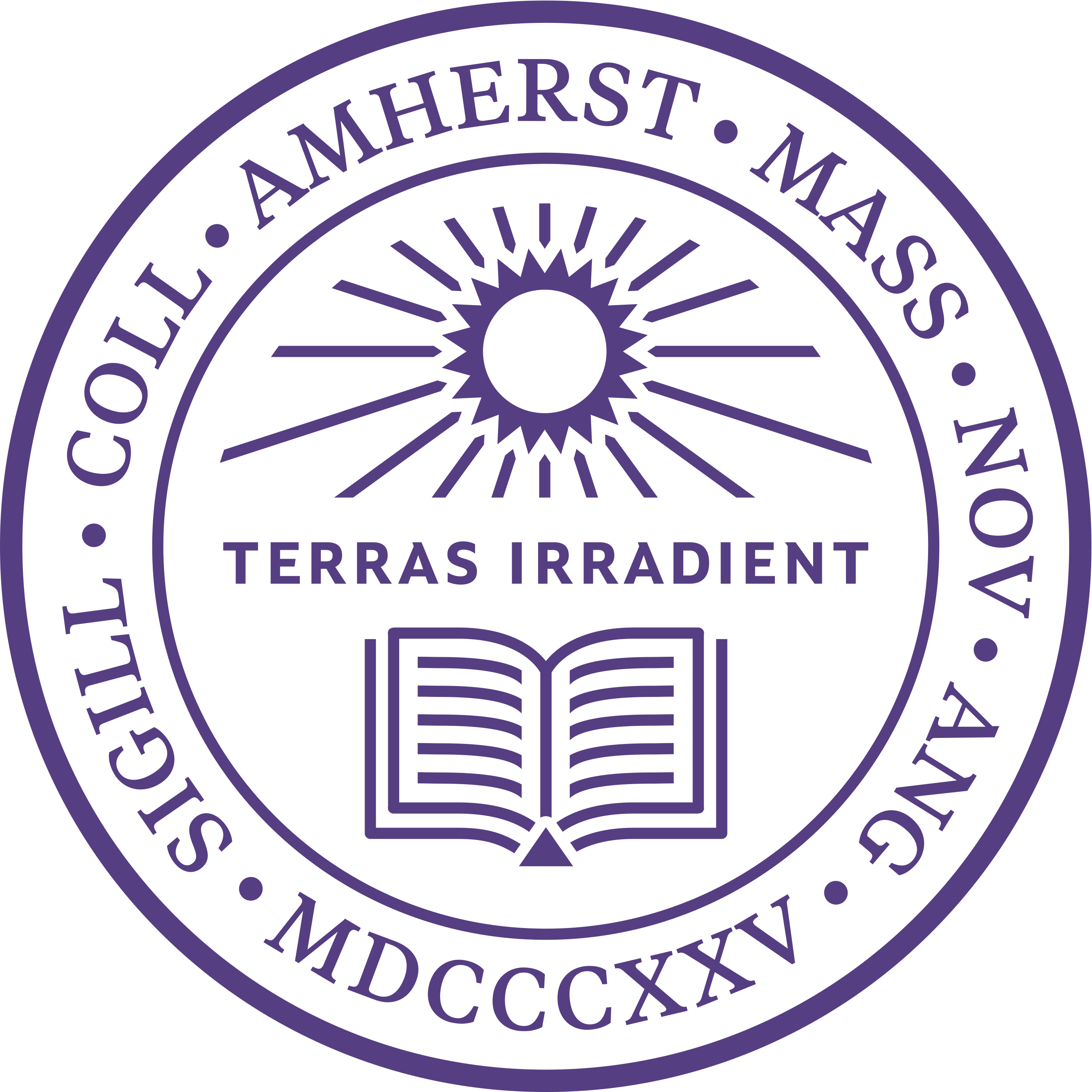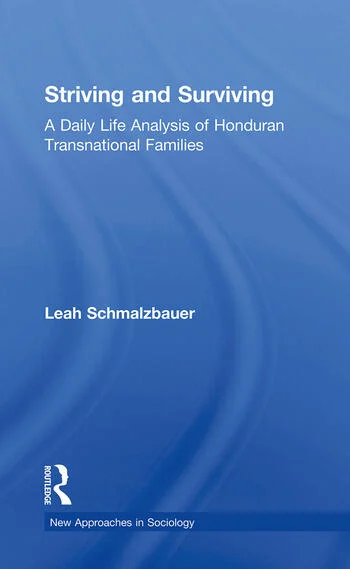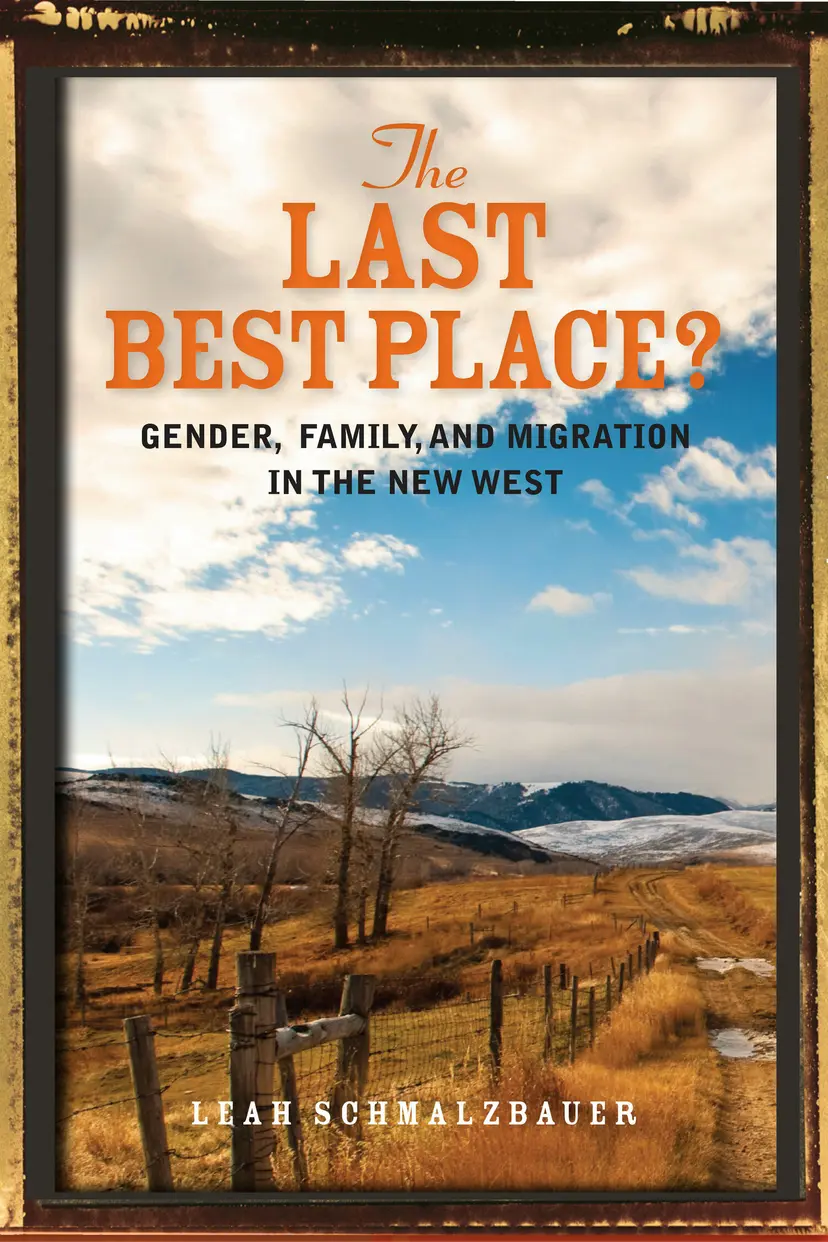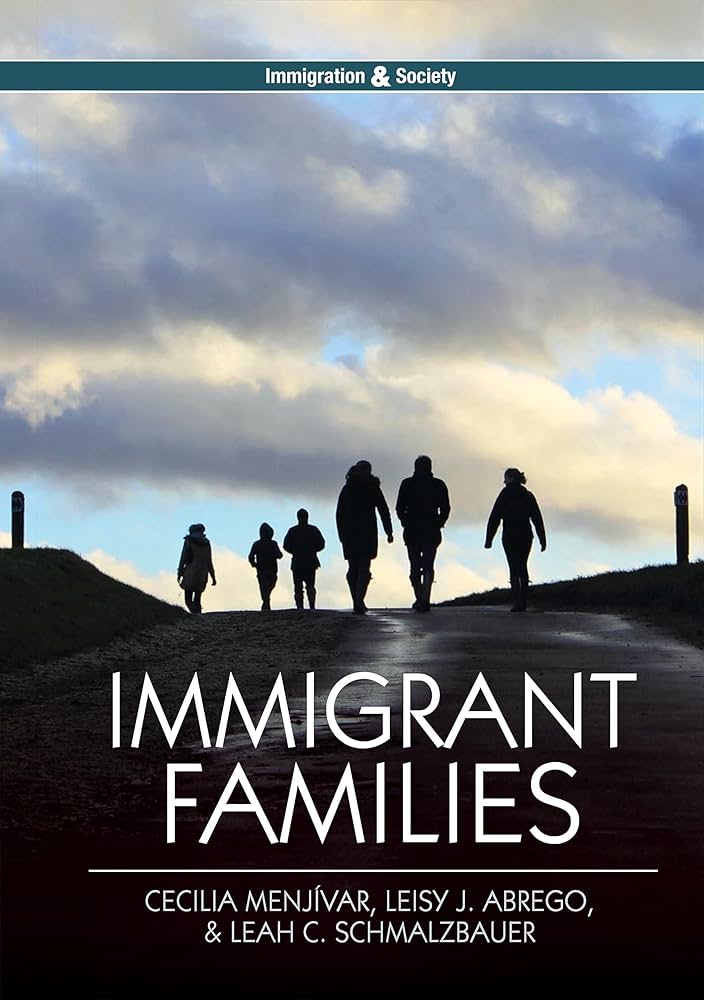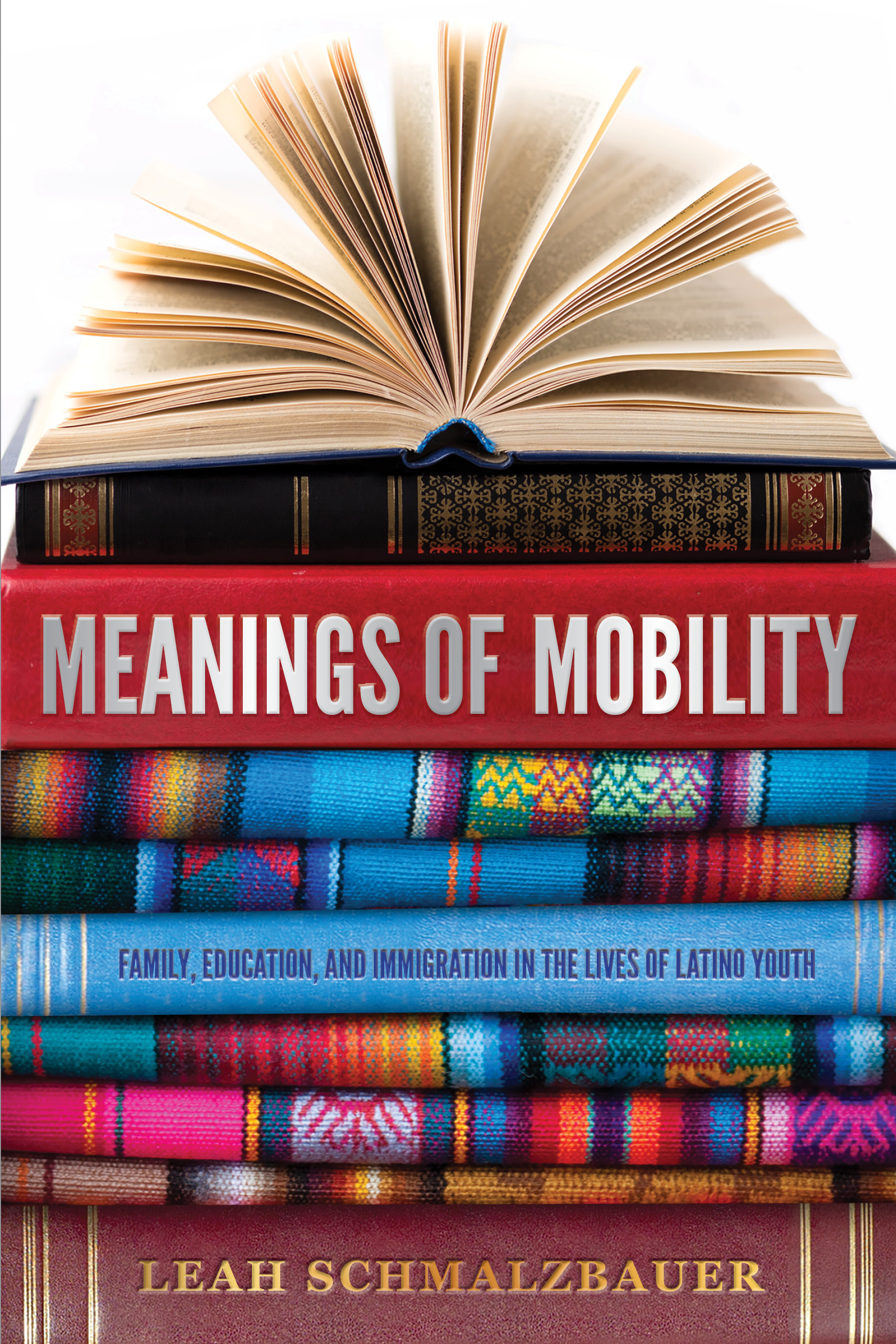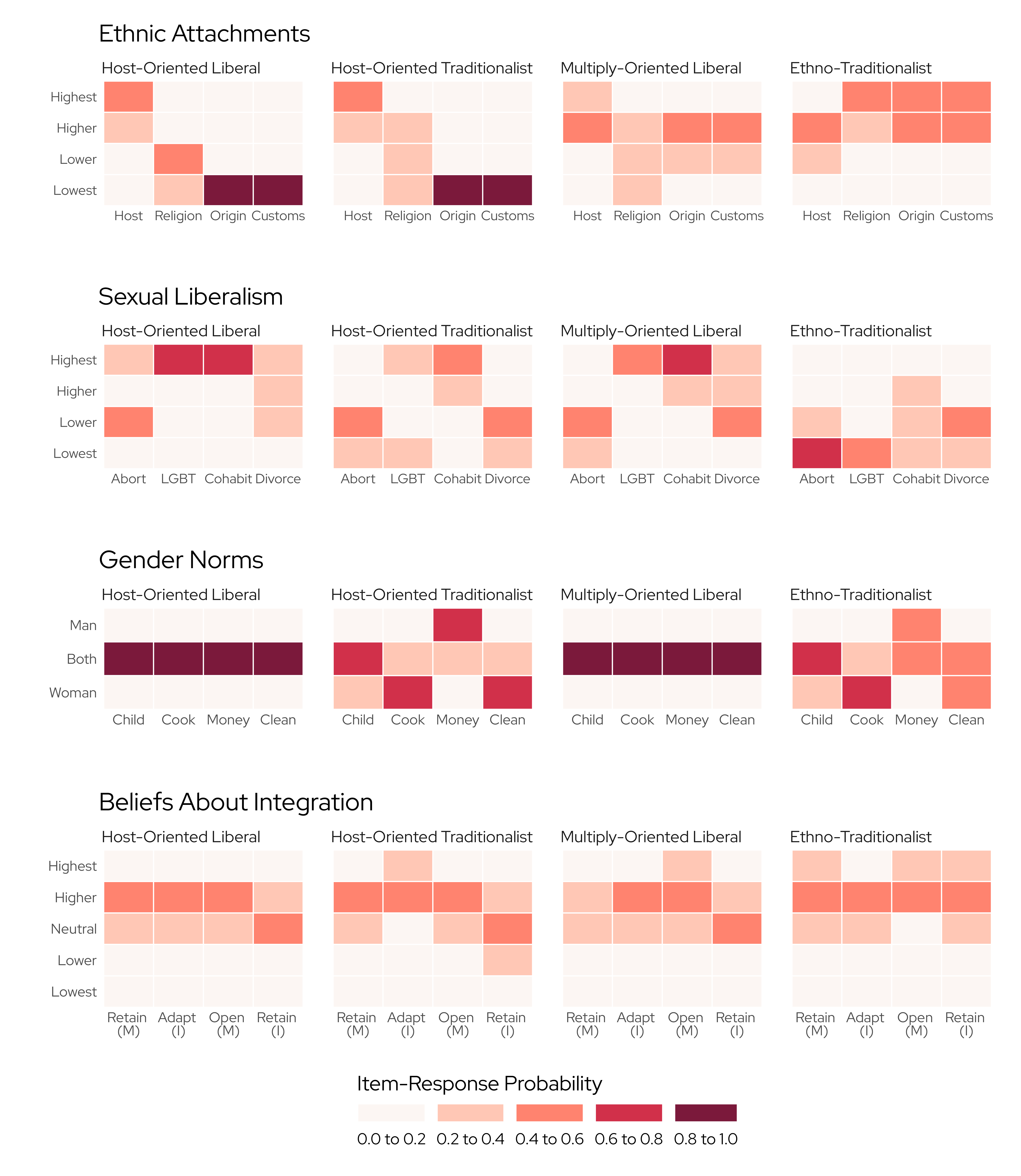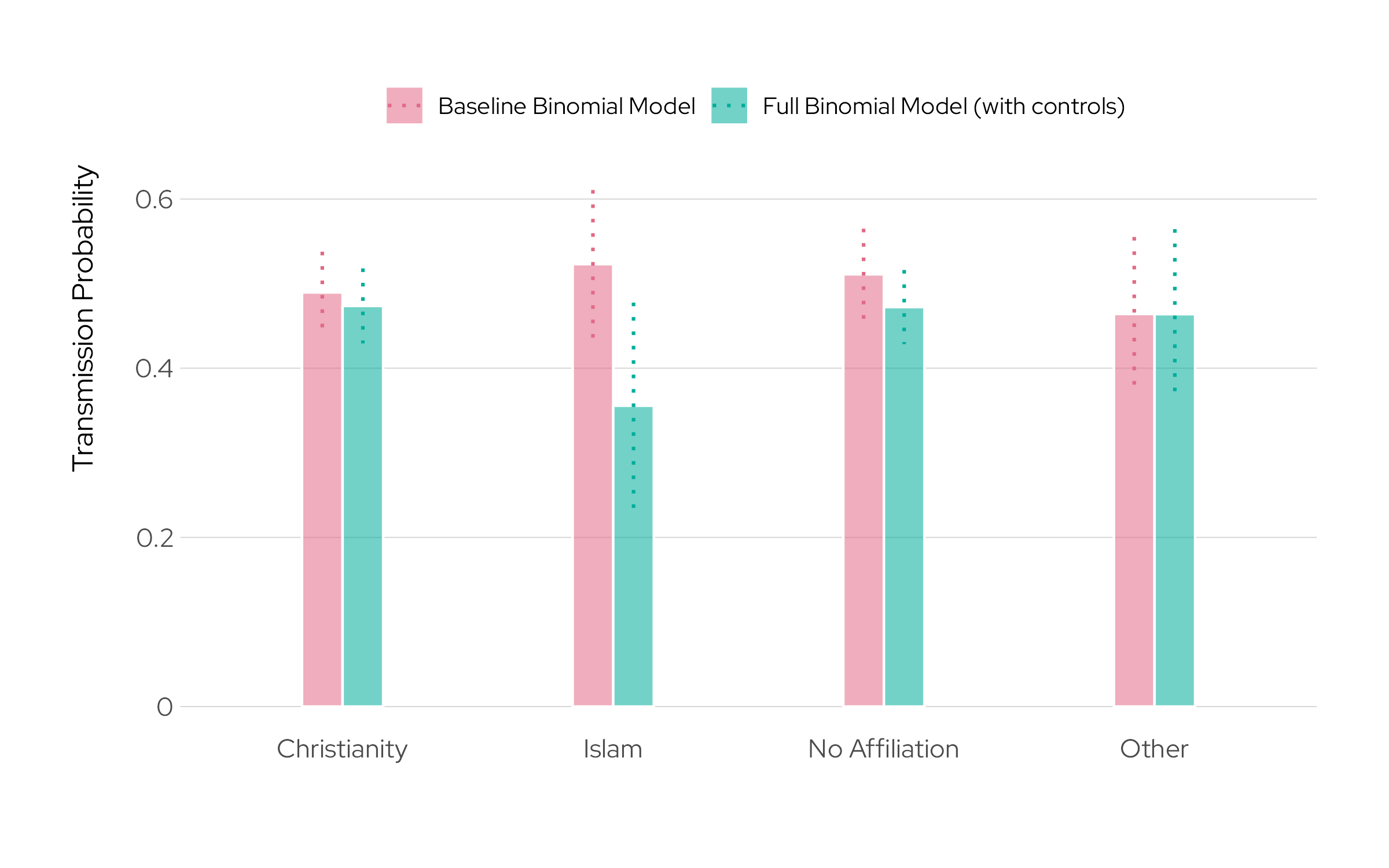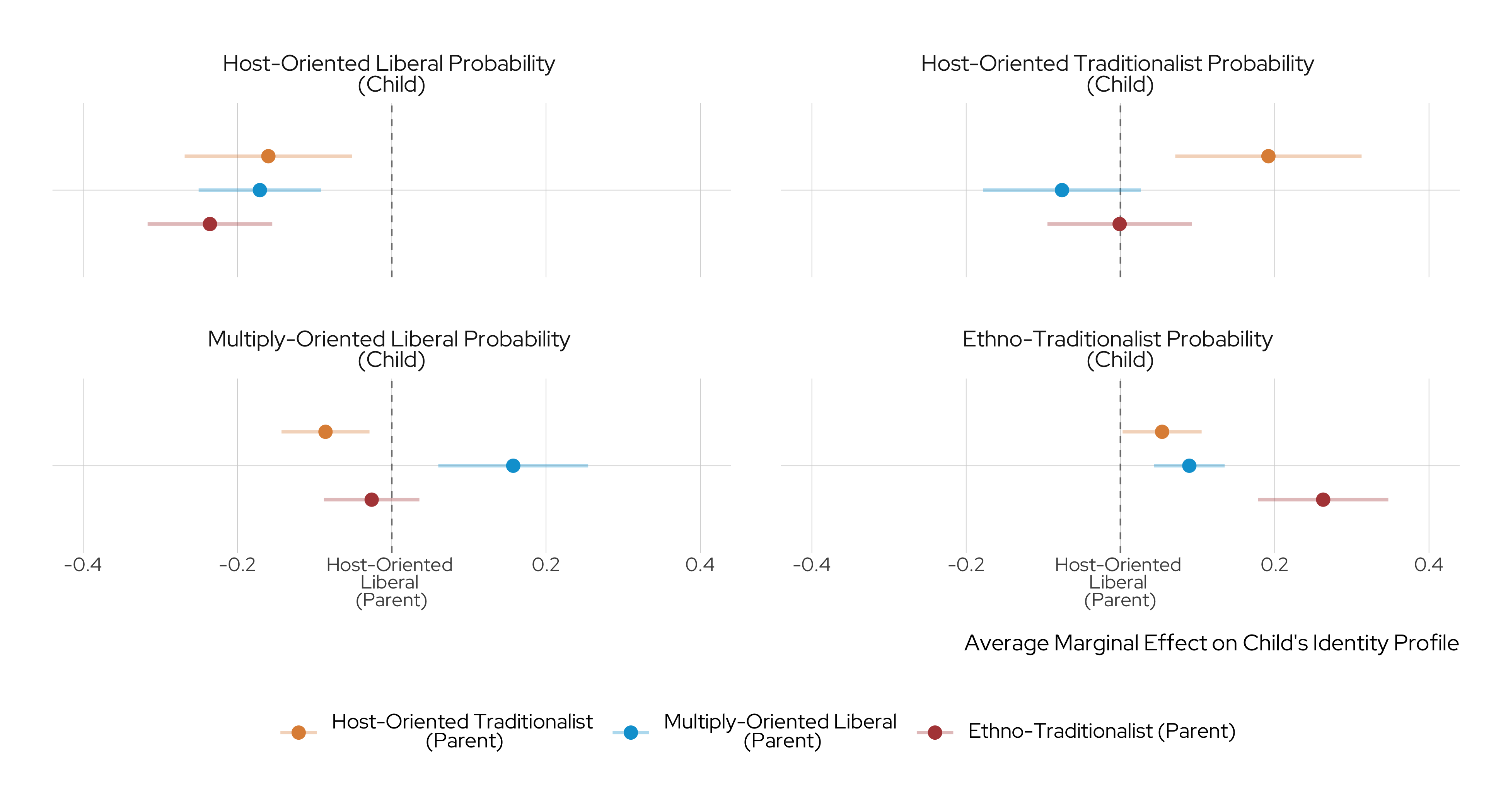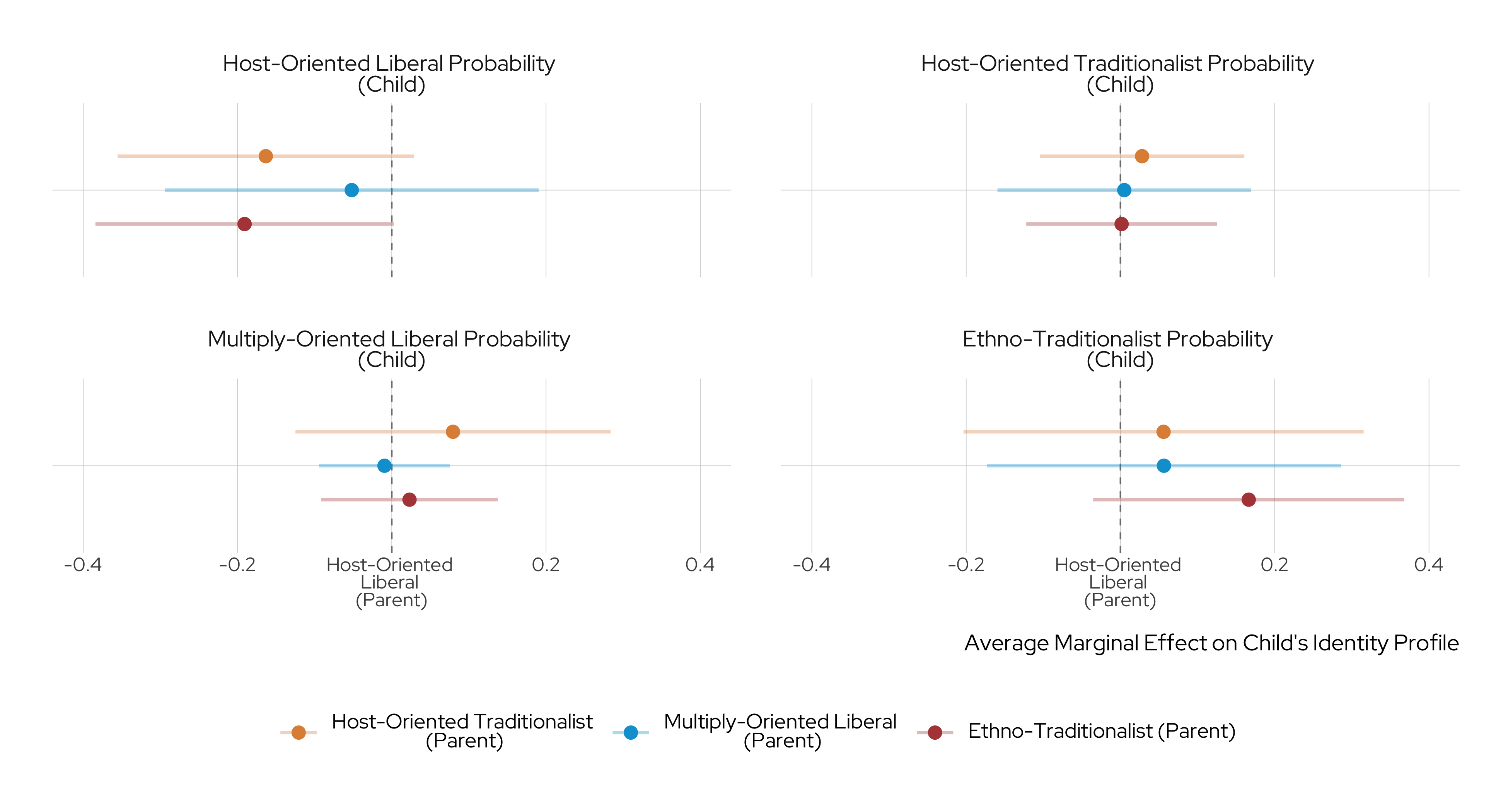Week 1
An Introduction to
Social Research
SOCI 316
SOCIAL RESEARCH
Getting Started—
January 28th
First Order of Business
Two Quick Questions
What’s your name? What are your majors?First Order of Business
Now, it’s our turn.
Getting to Know—
Leah C. Schmalzbauer
A Journey Through Four Books
Click image to launch gallery.
A Journey Through Four Books
A Journey Through Four Books
A Journey Through Four Books
Getting to Know—
Sakeef M. Karim
My Journey
The Broad View
My Journey
Cities Defined by International Migration

My Journey
Cities Defined by International Migration

My Journey
Cities Defined by International Migration
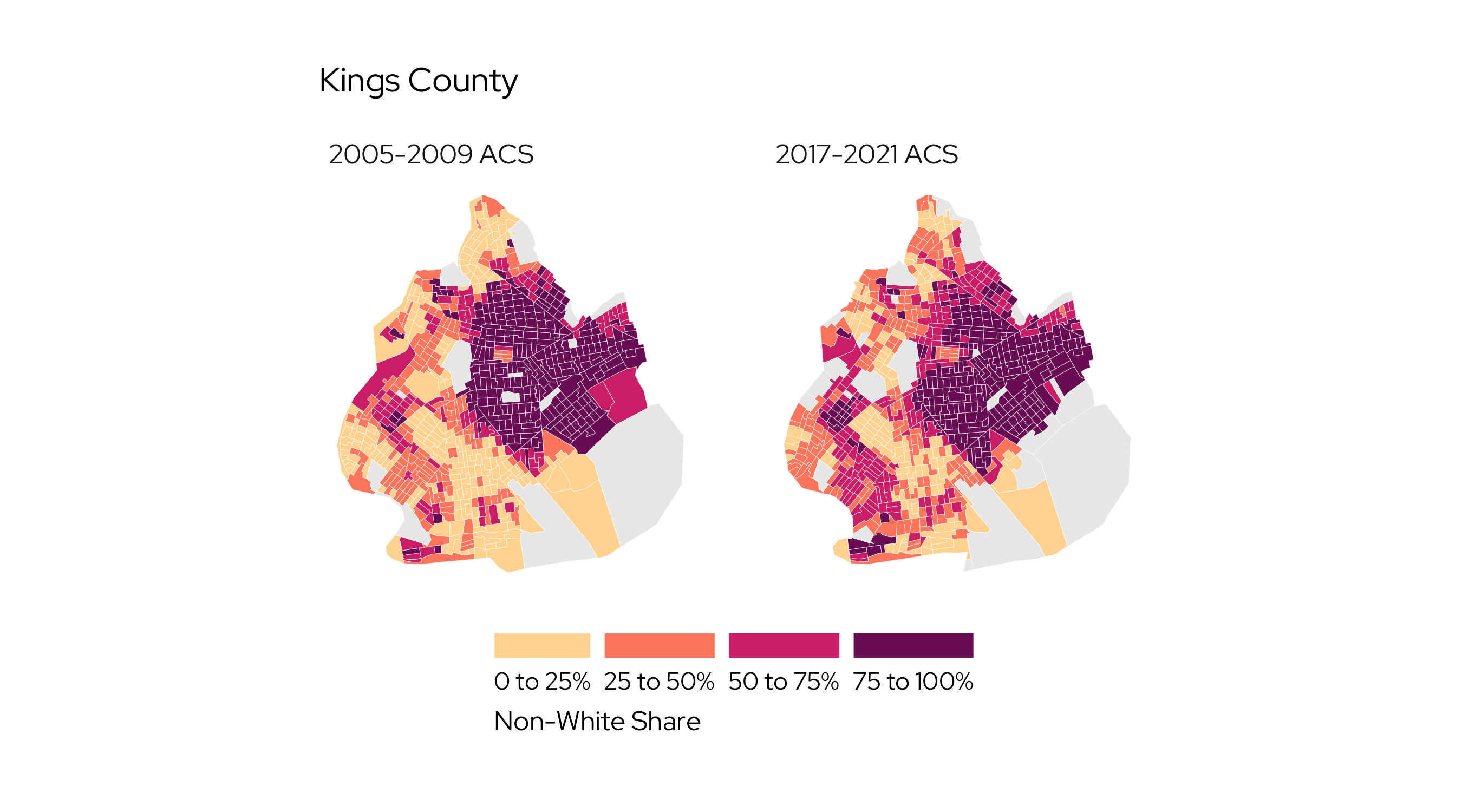
My Journey
Cities Defined by International Migration
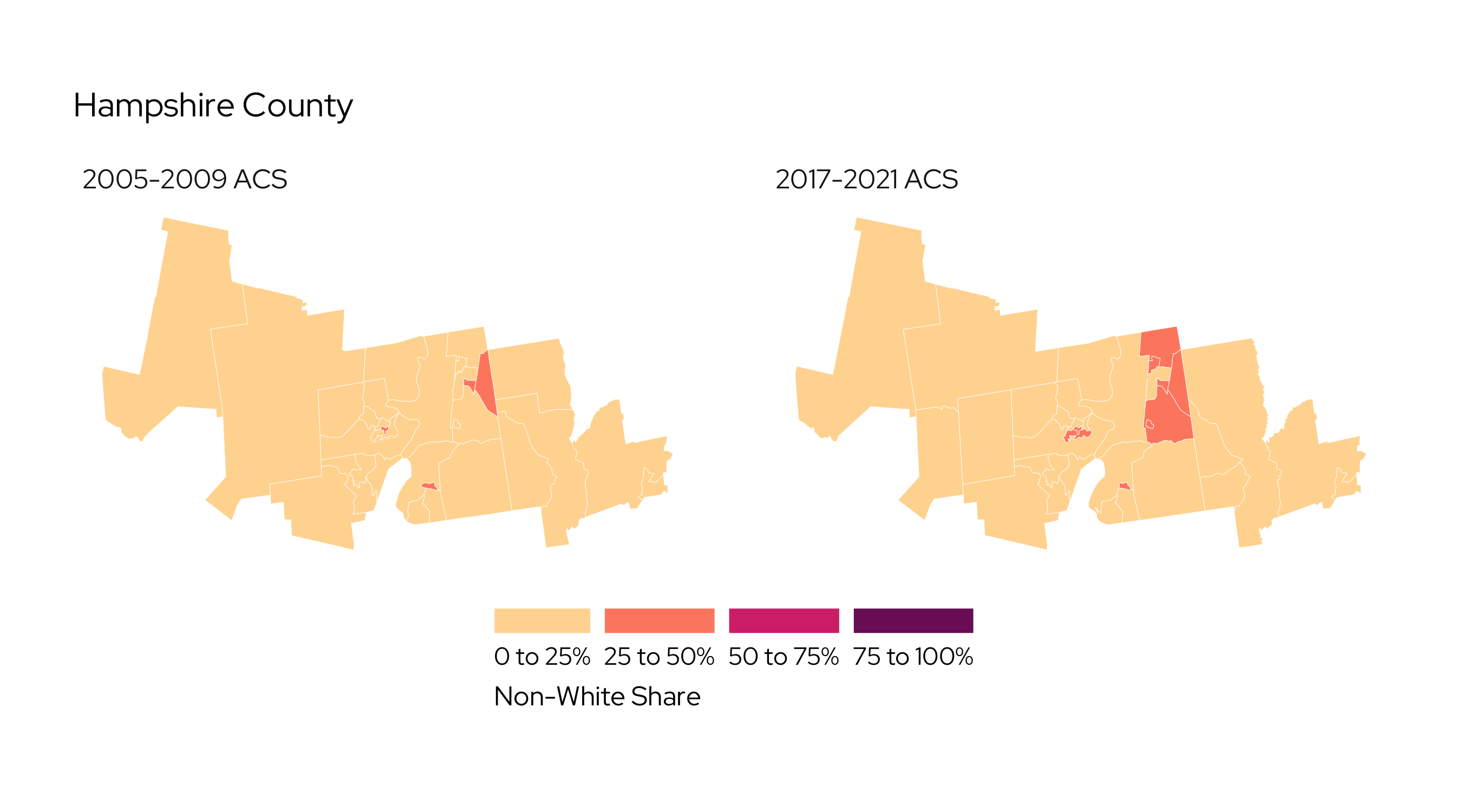
My Research
Personal Culture of Immigrant-Origin People
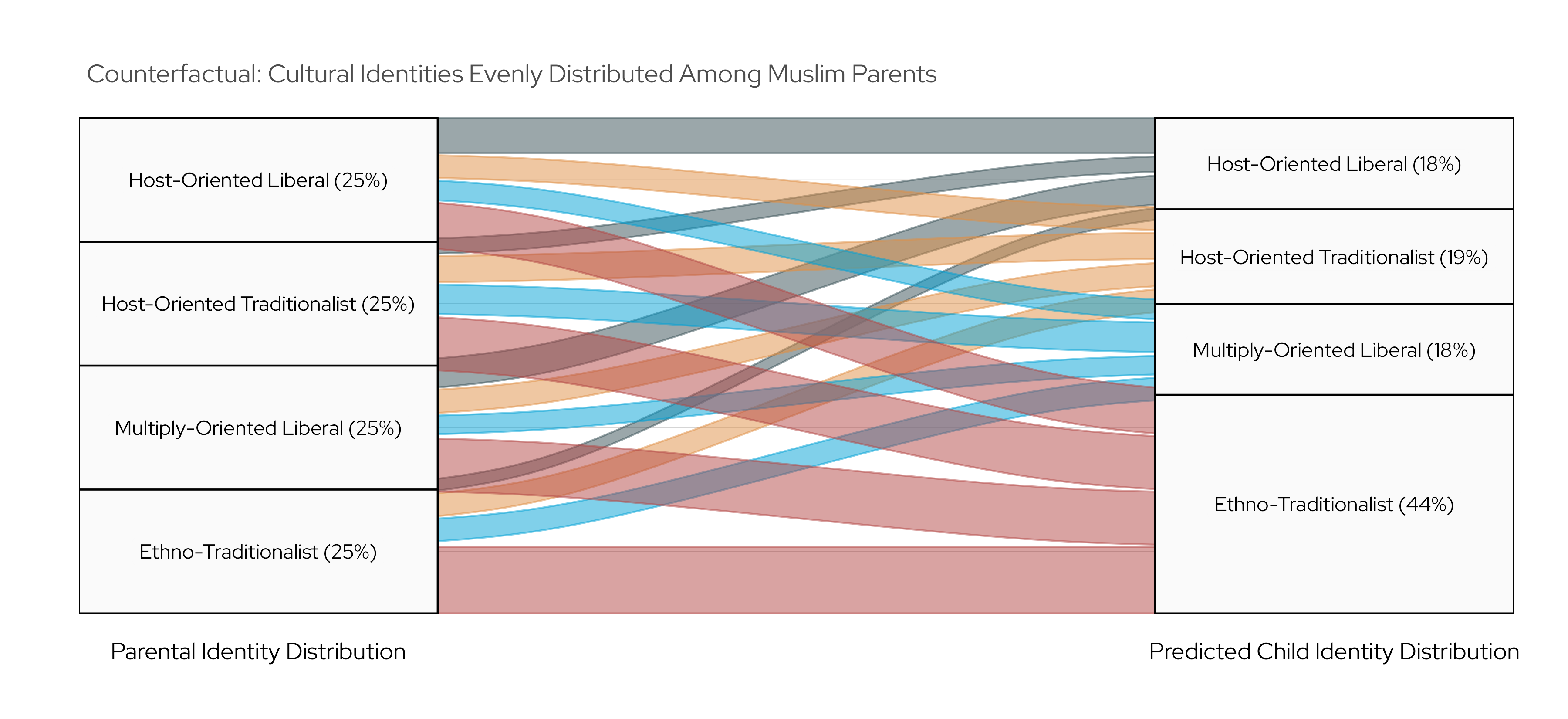
Figure 8 from Karim (2024)
My Research
Exclusionary Politics
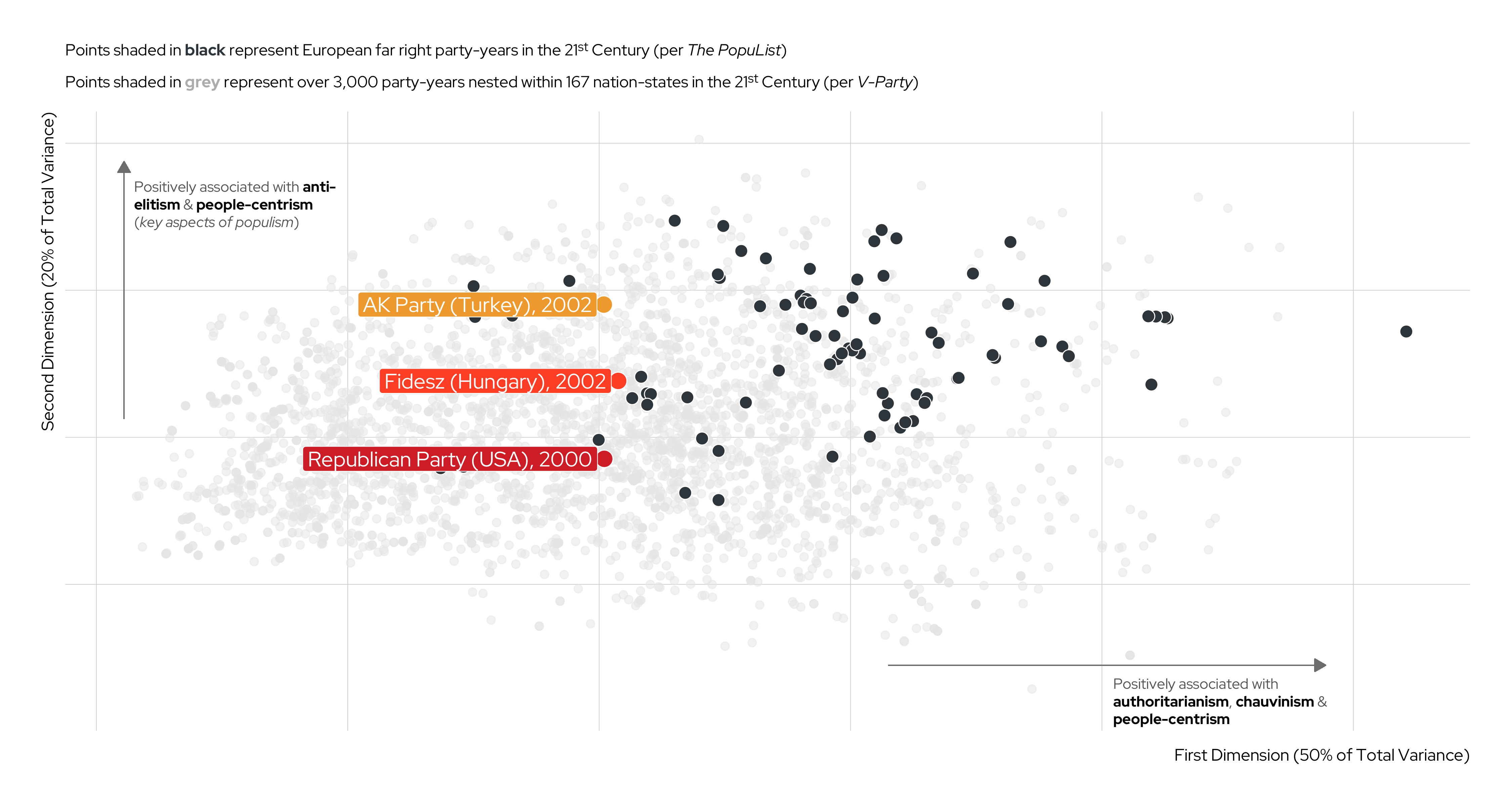
Karim and Lukk’s The Radicalization of Mainstream Parties in the 21st Century
This Class
The Syllabus
You can access the syllabus here.
The Syllabus

Office Hours
Tuesdays, 2:00-4:00 PM in Morgan Hall (Room 306) or by appointment.
Fridays, 2:30-5:00 PM in Morgan Hall (Room 203 A) or during a Zoom Open Slot.
Directions (Click to Expand or Close)
Appointment Policy
All meetings, even during office hours, must be scheduled in advance via Google Calendar.
Readings
Qualitative Literacy: A Guide to Evaluating Ethnographic and Interview Research
(Small and Calarco 2022)Data Analysis for Social Science: A Friendly and Practical Introduction
(Llaudet and Imai 2023)
Non-Textbook Readings
Non-textbook readings can be accessed via the eReserves page on Moodle.
Evaluations
Note: Scroll to access the entire table
| Task | Description | Weight | Deadline or Evaluative Time Horizon |
|---|---|---|---|
Participation |
This is a small research seminar. Ergo, class participation is vital. Students must actively engage in class discussions—sharing their thoughts, providing constructive feedback to peers, asking clarifying questions, and keeping us (i.e., the course instructors) informed of any developments vis-à-vis their final research proposals. |
30% |
All Semester |
Memo: |
Students are required to submit a concise, 500-word reflection detailing their research interests. In this reflection, students should specify the kinds of social phenomena—e.g., population processes, sexuality, political polarization, ethnic boundaries, digital media, cultural consumption, international migration, economic inequality, carceral policy and so on and so forth—they would like to scrutinize in their final proposal. |
7.5% |
Friday, February 14th at 8:00 PM. |
Annotated Bibliography |
Students must submit an annotated bibliography before spring break. This annotated bibliography will, in principle, directly inform—or serve as the foundation for—the literature review they include in their final research proposal. In the bibliography, students must identify at least 10 sources germane to their topic of interest. For each source, students must provide a 100–150-word summary of the key argument(s) proffered by the author(s). Other expectations will be detailed in a short rubric, which we will upload by late-February. |
15% |
Friday, March 14th at 8:00 PM. |
Memo: |
Towards the end of the semester, we will conduct a large-scale social survey (with an approximate N of 500) using a survey recruitment firm. This will be a collaborative undertaking: i.e., each student will ideally contribute at least one question to the survey. With this goal in mind, students are required to submit a response memo proposing five potential survey questions. For each question, students must include a 100-word rationale explaining how the proposed item addresses a significant sociological question. |
7.5% |
Friday, March 28th at 8:00 PM. |
Final Presentation |
In Part V of the class, students will deliver a 10–15-minute presentation on the research project they have developed over the term. A rubric with grading criteria will be available on this syllabus by early April. |
10% |
Part V of the semester. |
Final Research Proposal |
Students are required to submit a detailed research proposal (15-25 pages, double-spaced) on a topic of their choice, subject to the approval of the two course instructors. The chosen topic must be related to the study of human societies and fall within sociology’s broad intellectual mandate. A more detailed set of expectations will be uploaded onto this course syllabus by early-to-mid April. |
30% |
Friday, May 9th at 8:00 PM. |
Evaluations
Let’s look at one row at a time.
Evaluations
| Task | Description | Weight | Deadline or Evaluative Time Horizon |
|---|---|---|---|
Participation |
This is a small research seminar. Ergo, class participation is vital. Students must actively engage in class discussions—sharing their thoughts, providing constructive feedback to peers, asking clarifying questions, and keeping us (i.e., the course instructors) informed of any developments vis-à-vis their final research proposals. |
30% |
All Semester |
Evaluations
| Task | Description | Weight | Deadline or Evaluative Time Horizon |
|---|---|---|---|
Memo: |
Students are required to submit a concise, 500-word reflection detailing their research interests. In this reflection, students should specify the kinds of social phenomena—e.g., population processes, sexuality, political polarization, ethnic boundaries, digital media, cultural consumption, international migration, economic inequality, carceral policy and so on and so forth—they would like to scrutinize in their final proposal. |
7.5% |
Friday, February 14th at 8:00 PM. |
Evaluations
| Task | Description | Weight | Deadline or Evaluative Time Horizon |
|---|---|---|---|
Annotated Bibliography |
Students must submit an annotated bibliography before spring break. This annotated bibliography will, in principle, directly inform—or serve as the foundation for—the literature review they include in their final research proposal. In the bibliography, students must identify at least 10 sources germane to their topic of interest. For each source, students must provide a 100–150-word summary of the key argument(s) proffered by the author(s). Other expectations will be detailed in a short rubric, which we will upload by late-February. |
15% |
Friday, March 14th at 8:00 PM. |
Evaluations
| Task | Description | Weight | Deadline or Evaluative Time Horizon |
|---|---|---|---|
Memo: |
Towards the end of the semester, we will conduct a large-scale social survey (with an approximate N of 500) using a survey recruitment firm. This will be a collaborative undertaking: i.e., each student will ideally contribute at least one question to the survey. With this goal in mind, students are required to submit a response memo proposing five potential survey questions. For each question, students must include a 100-word rationale explaining how the proposed item addresses a significant sociological question. |
7.5% |
Friday, March 28th at 8:00 PM. |
Evaluations
| Task | Description | Weight | Deadline or Evaluative Time Horizon |
|---|---|---|---|
Final Presentation |
In Part V of the class, students will deliver a 10–15-minute presentation on the research project they have developed over the term. A rubric with grading criteria will be available on this syllabus by early April. |
10% |
Part V of the semester. |
Evaluations
| Task | Description | Weight | Deadline or Evaluative Time Horizon |
|---|---|---|---|
Final Research Proposal |
Students are required to submit a detailed research proposal (15-25 pages, double-spaced) on a topic of their choice, subject to the approval of the two course instructors. The chosen topic must be related to the study of human societies and fall within sociology’s broad intellectual mandate. A more detailed set of expectations will be uploaded onto this course syllabus by early-to-mid April. |
30% |
Friday, May 9th at 8:00 PM. |
Evaluations
Guidelines for Major Assignments
Guidelines for the three key deliverables—i.e., the annotated bibliography; the final presentation; and the final research proposal—will be gradually rolled out (or uploaded online) as deadlines come into focus.
Norms, Rules, Regulations & More
Accessibility and Accommodations
If you require accommodations, please contact Student Accessibility Services as soon as possible and submit an application through the new AIM Portal. More generally, if you have any suggestions about how this class can be more accessible and inclusive, please let us know via e-mail or during office hours.
Norms, Rules, Regulations & More
Class Policies
Please review the Amherst College Honor Code, which can be accessed in its entirety here.
Violations of the Honor Code will be promptly reported to the Dean of Students. As Section 1.1 of the Honor Code indicates, plagiarism is a serious offense. In most cases, students who plagiarize the work of others will fail this class and may face additional disciplinary penalties. Moreover, as detailed in Sections 1.2 to 1.4 of the Honor Code, students must respect others in the classroom, including those whose views deviate from their own. Failure to do so will prompt disciplinary action.
There is no reason to pretend like generative artificial intelligence (GAI) does not exist in the world out there. These systems have arrived, and they may revolutionize how higher education “works.” With this in mind, you are free to use ChatGPT and its analogues for class assignments—but you have to cite the GAI you are using. Failure to do so amounts to plagiarism.
To reiterate:
Generative AI Policy
If you use a GAI tool (like ChatGPT) and do not cite it, it is a form of plagiarism.
You are expected to attend each and every class. If you do not, you will lose points for participation. That said, we are aware that you are all human beings whose lives are often fraught with uncertainty. If something comes up, please let us know and we will do our best to be as accommodating as possible. Extended absences may, however, require additional documentation (e.g., note from a physician).
Provisionally, we have decided to allow students to use laptops and tablets in class. This is, however, highly conditional. If we observe students using their electronic devices for non-academic pursuits (e.g., shopping, consuming social media and so on), we will institute a sweeping ban on electronics. Do not be the one to contravene our social contract.
On weekdays and non-holidays, we will respond to e-mails within 48 hours. If we fail to meet this standard, please send us a follow-up message with a gentle reminder. On weekends and breaks, we will not respond to e-mails unless you have an emergency. If you do, please include EMERGENCY in the subject line.
Assignments must be submitted on time. A late submission will result in a penalty of 5% for each day beyond the deadline. However, as noted, we are well aware that life can present unexpected challenges. If you anticipate missing a deadline or have an emergency, please inform us soon as you can. Extensions may be granted on a case-by-case basis.
Three Basic Expectations
Read carefully but efficiently.
Participate in class conversations. We’ll all learn more that way.
Have fun!
Two Case Studies—
January 30th
Our Goals For Today
Review two projects on immigrant families—one qualitative, the other quantitative.
Work in small groups to explore and discuss research ideas.
First Up—
Leah C. Schmalzbauer
Meanings of Mobility
Family, Education, and Immigration in the Lives of Latino Youth (Schmalzbauer 2023)
Next Up—
Sakeef M. Karim
The Paper
Islam and the Transmission of Cultural Identity in Four European Countries (Karim 2024)
The “Debate”
The paper is, in a sense, engaging with “debates” related to the cultural incorporation of Muslims in Europe.
The “Debate”
In the case of Muslim immigrants in Europe, the causal arrow follows a Weberian trajectory from culture and religious affiliation to relational and socioeconomic outcomes. Parental influences aiming at cultural maintenance and discrimination from natives are the two sides of the predicament faced by the second-generation Muslim youths.
(Drouhot and Nee 2019, 188–89, EMPHASIS ADDED)
The “Debate”
Some (Stylized) Context
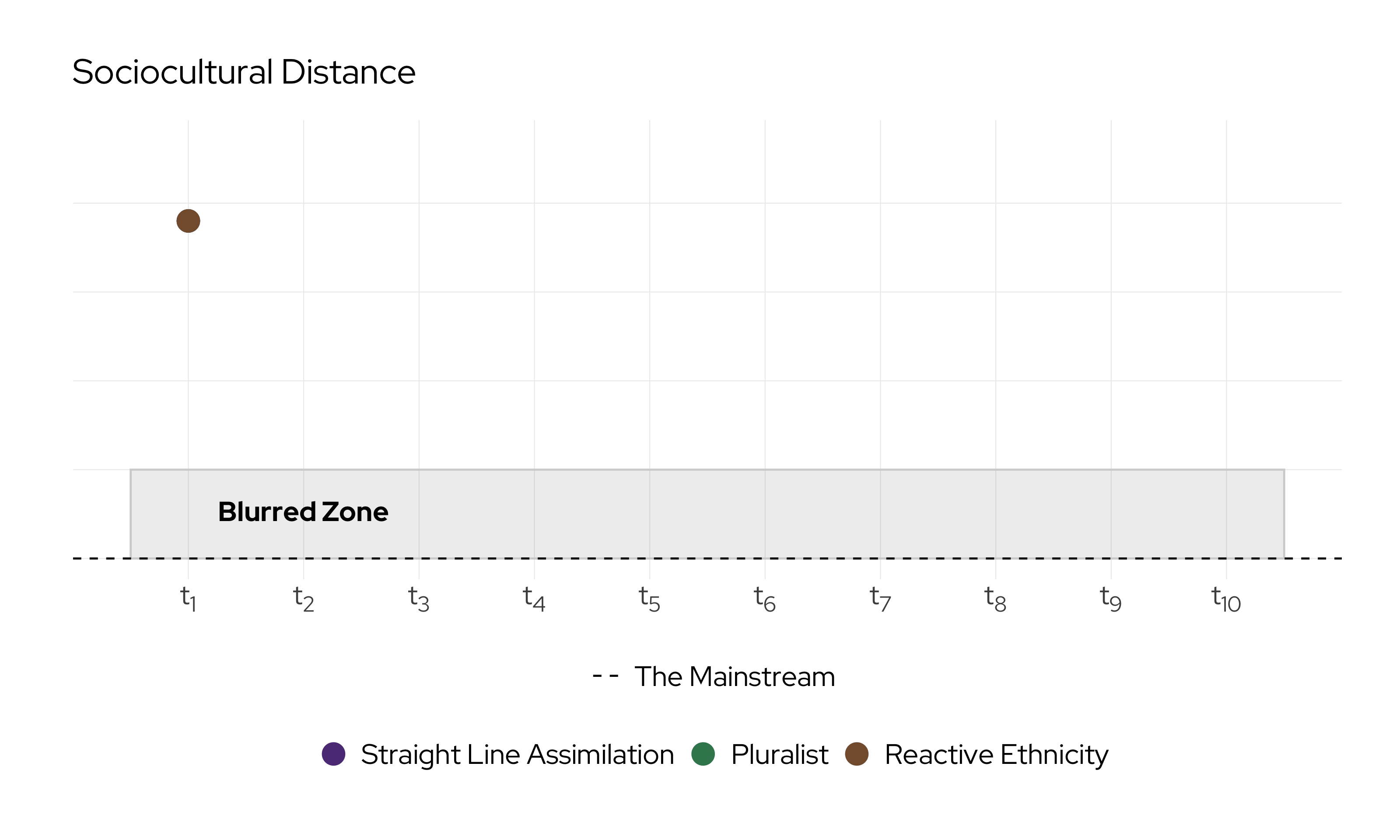
My Argument
Studies exploring the integration of European immigrants tend to highlight cultural differences between Muslim children and their immigrant-origin classmates (Bisin et al. 2008; Drouhot 2021).
What explains this cultural distance? Drouhot and Nee (2019):
- Discrimination from native majorities.
- Cultural transfers from parents to children.
The cultural retention thesis is only valid if we reduce personal culture (Kiley and Vaisey 2020; Lersch 2023; Lizardo 2017) to single issue domains or attitudinal dimensions.
If we study multiple dimensions of cultural meaning at the same time, we may observe more cultural disjunctures or discontinuities within European Muslim households.
- The transmission advantage among Muslim parents in Europe may disappear entirely.
Empirical Targets: Latent Cultural Identities
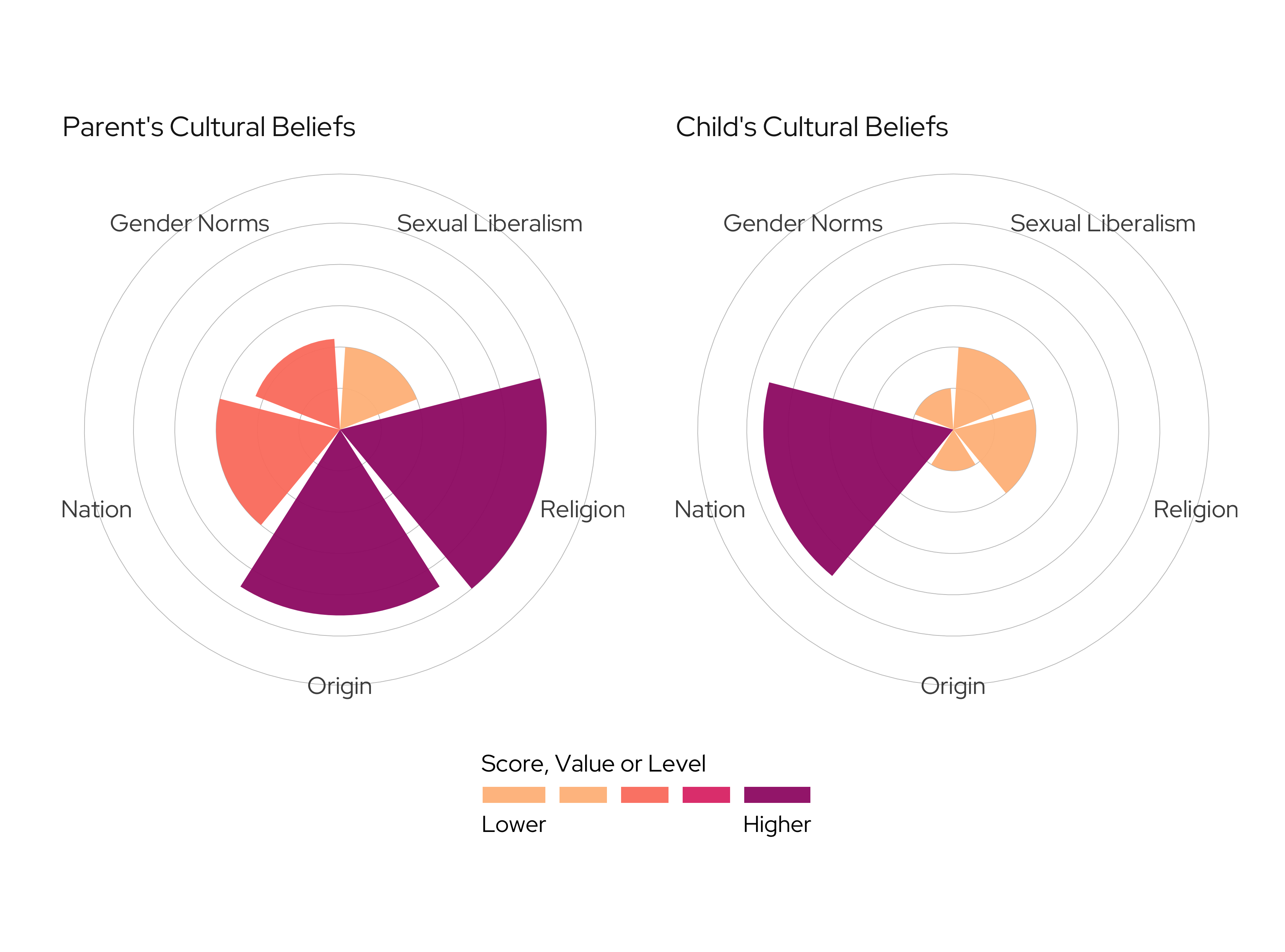
Empirical Targets: Latent Cultural Identities
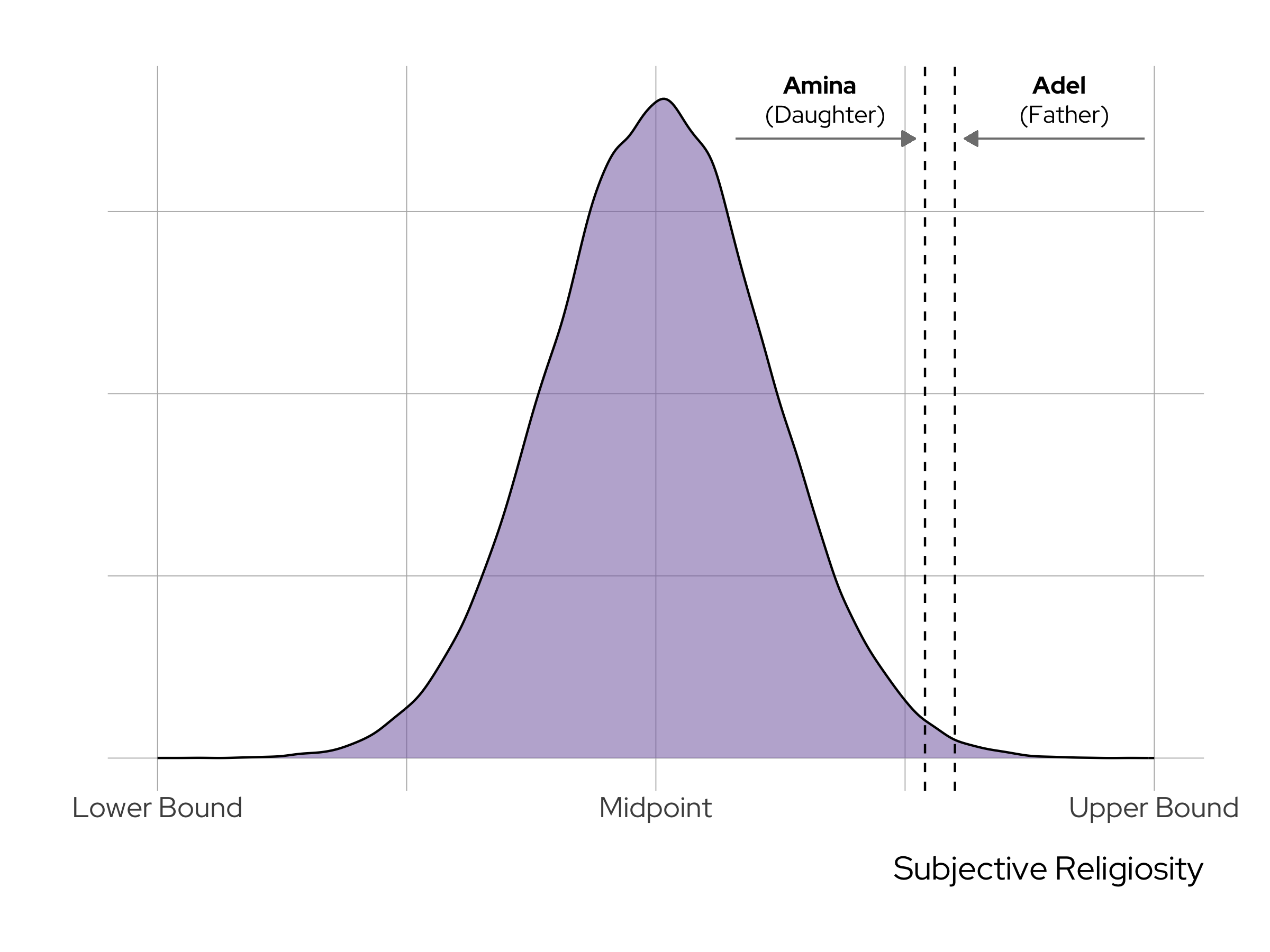
Empirical Targets: Latent Cultural Identities
| Respondent | Attachment to |
Attachment to |
Attachment to |
Gender |
|---|---|---|---|---|
Adel |
Traditional |
|||
Amina |
Egalitarian |
Empirical Targets: Latent Cultural Identities
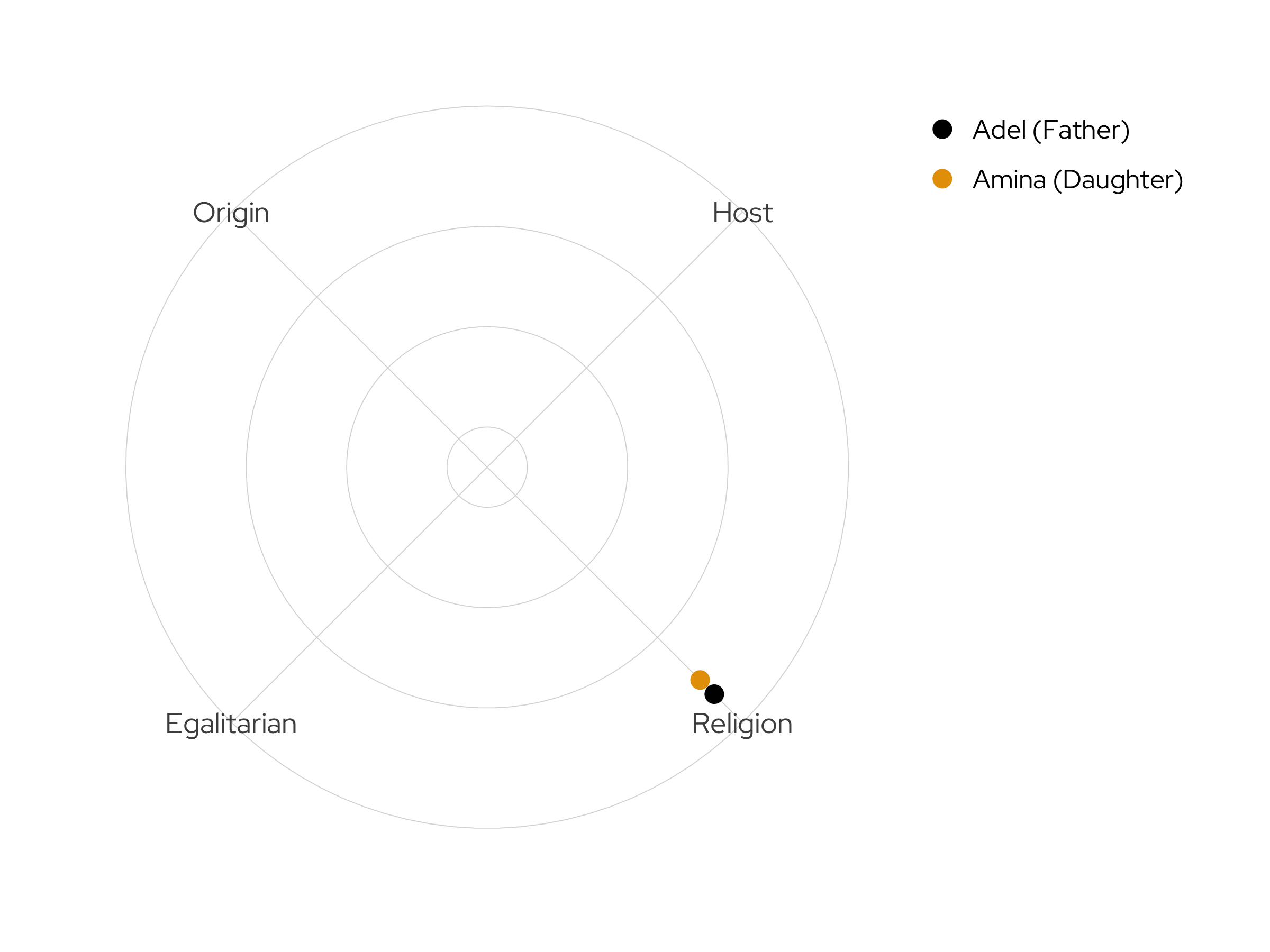
Empirical Targets: Latent Cultural Identities
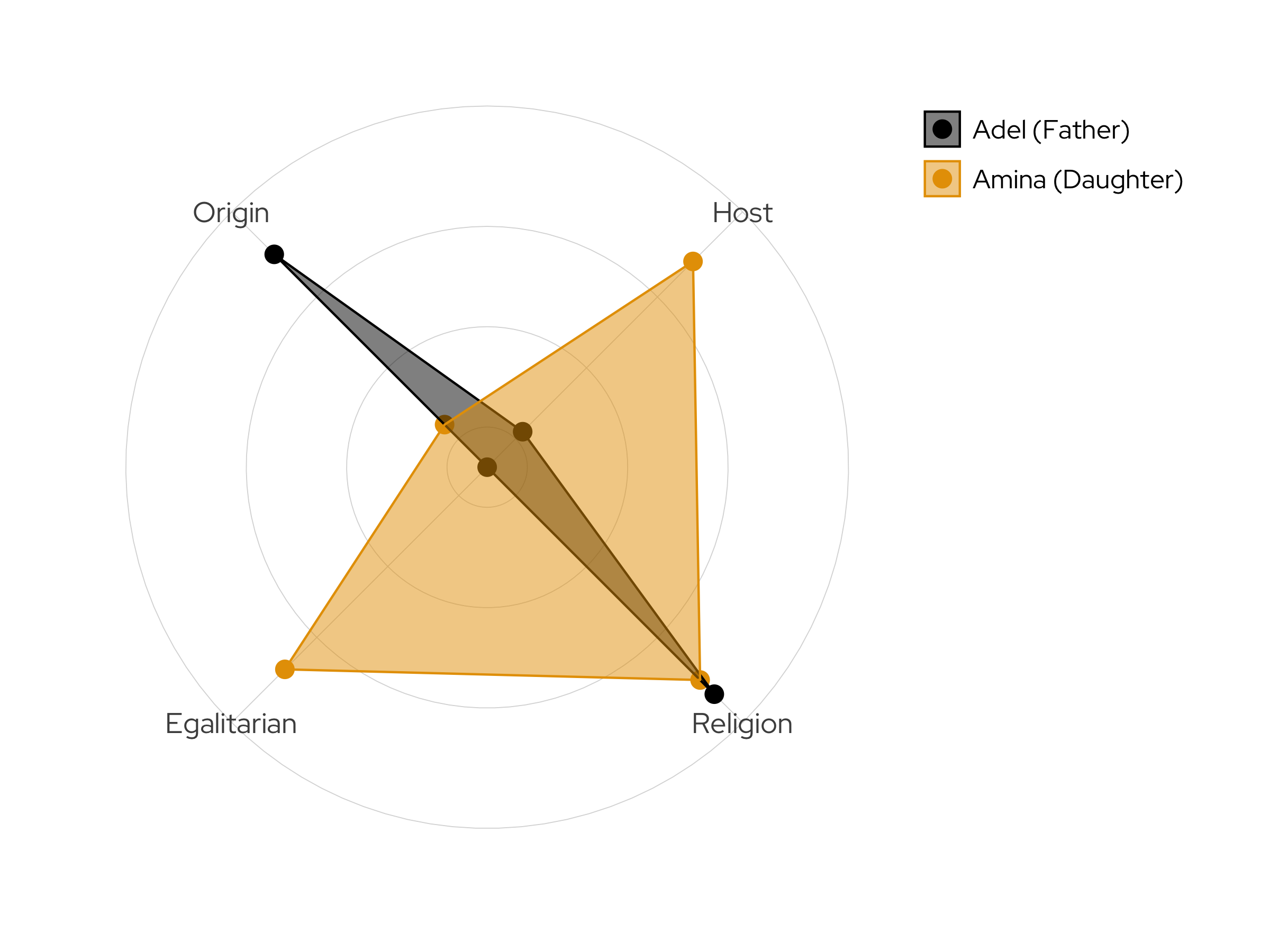
Empirical Targets: Latent Cultural Identities

Empirical Targets: Latent Cultural Identities

Empirical Targets: Cultural Transmission
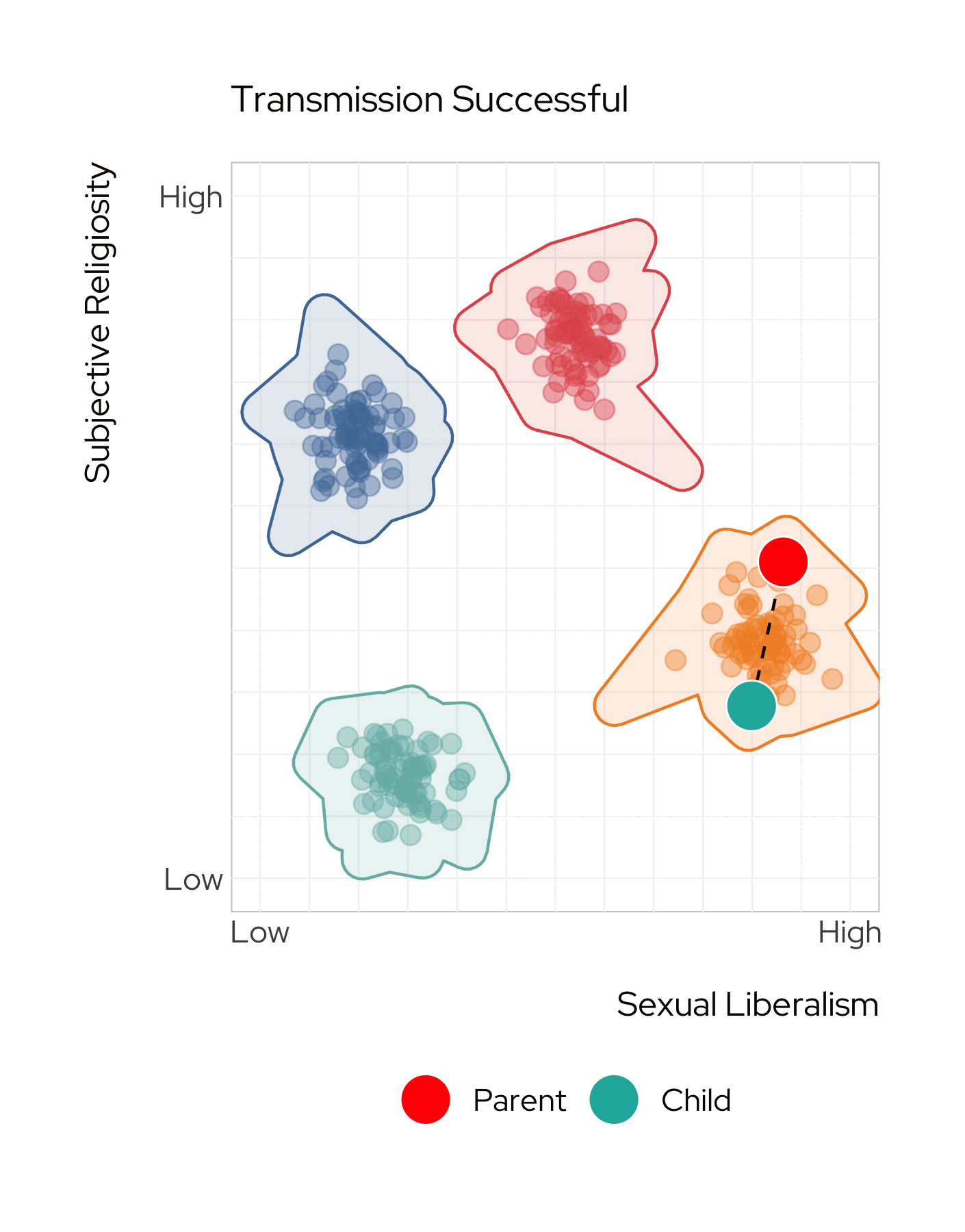
Data Source: CILS4EU

Cultural Identity Profiles in the Data
Figure 3 from Karim (2024).
Note: Scroll to access the entire graphic—or click the image.
Cultural Transmission Patterns
Figure 6 from Karim (2024).
Cultural Transmission Patterns
Among Christians
Adaptation of Figure 7 from Karim (2024).
Cultural Transmission Patterns
Among Muslims
Adaptation of Figure 7 from Karim (2024).
Cultural Transmission Patterns

Figure 8 from Karim (2024).
Take-Home Message
Ultimately, I find scant evidence to support the claim that intergenerational transmission drives cultural differences between Muslim adolescents and their immigrant-origin peers. Overall, these results challenge the cultural retention thesis. Compared to transmission within families, forces exogenous to the family unit—such as the social closure wrought by discrimination or Islamic revivalism … appear to be more proximately associated with the cultural identities of Muslim children.
(Karim 2024, 758–59, EMPHASIS ADDED)
Small Group Exercise
A Question For All of You
So, what are you interested in researching?
Enjoy the Weekend
References
Note: Scroll to access the entire bibliography
